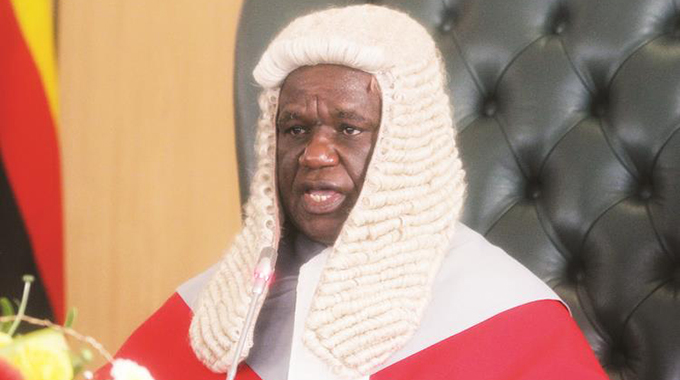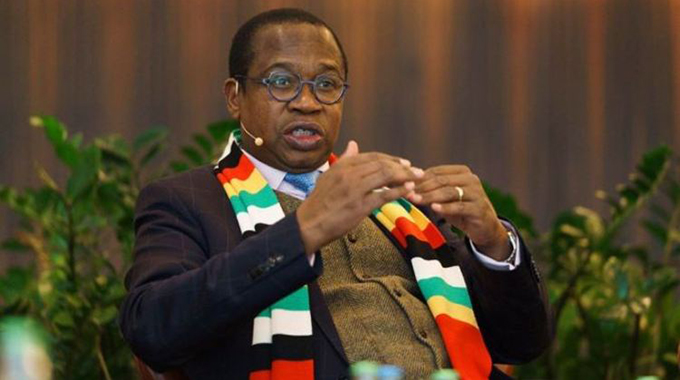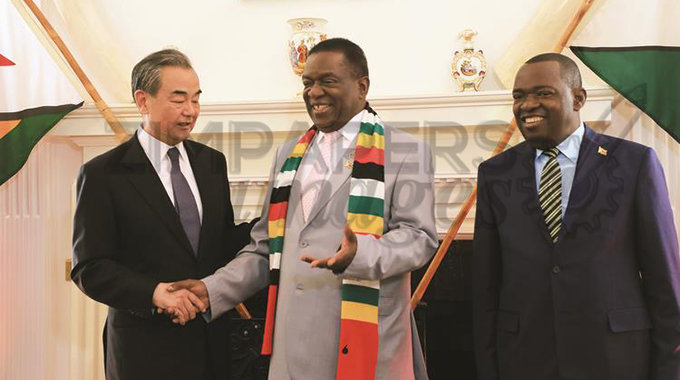Specialised courts for machete gangs

Fidelis Munyoro Chief Court Reporter
Special courts have been set up in areas hardest hit by machete gangs, while those for corruption cases will soon be ready.
This comes as judges have already been appointed, with assistance sought from Uganda to ensure investigators and prosecutors of corruption meet the required standards.
Speaking at the opening of the 2020 Legal Year yesterday, Chief Justice Luke Malaba said special courts have been set up countrywide to deal specifically with organised machete gang attackers that are terrorising citizens, especially in gold mining areas, and show the Judiciary had capacity to fight crime and enforce the law.
The specialised courts are expected to clamp down speedily and decisively on the machete gang menace following grisly murders, including that of a Kadoma police officer, robberies and vicious assaults.
Machete gangs have become a major force in gold-rich mining towns like Kwekwe, Kadoma, Bindura and Chegutu, where they are killing and sexually abusing gold miners and civilians.
They have also moved into some towns and cities.
Chief Justice Malaba strongly warned rogue elements behind the wave of machete and knife violence.
“As we speak, the country is gripped by another spate of violence perpetrated by the so-called machete gangs,” he said.
“The Judiciary acknowledges the work being undertaken by law enforcement agencies in bringing perpetrators of that violence to book.
“May I assure the nation that the courts stand ready to decisively deal with those accused of these offences in accordance with the law. Special courts to specifically try the cases have been set up in all affected areas across the country. I call upon all stakeholders in the administration of justice to make concerted efforts to end this problem.”
Chief Justice Malaba said institutions mandated to protect citizens could not sit back and watch while a few rogue elements terrorised the nation for their selfish benefits.
“We hear stories of callous murders of ordinary Zimbabweans and law enforcement agents,” he said.
“Citizens’ rights of freedom of movement, freedom to conduct their affairs without fear and freedom of association are being violated with impunity by the gangsters. The organised terror gangs have the potential to create anarchy if they are not quickly neutralised.
Turning to corruption, Chief Justice Malaba said the fight against corruption continued to gain traction and will be a major part of the court system’s agenda this year. A decision has since been made to establish specialised anti-corruption courts at a higher level.
At present, courtrooms for the anti-graft crusade are under renovation and judges have been appointed in Harare and Bulawayo.
Chief Justice Malaba said after noting the strides that other jurisdictions have made in setting up similar courts, he has approached his Ugandan counterpart seeking assistance in the professional development of local judicial officers.
Uganda has been running specialised anti-corruption courts for the last 10 years, which have done well in the adjudication of corruption-related cases.
Chief Justice Malaba said a judge in charge of the Uganda anti-corruption courts will be coming to Zimbabwe before end of this month to share Uganda’s experiences with local judges and magistrates.
“We have also requested the same judge to interact with other players in the justice sector, such as the National Prosecuting Authority (NPA), the Zimbabwe Anti-Corruption Commission (ZACC) and the Zimbabwe Republic Police (ZRP).”
Chief Justice Malaba said members of the public should participate in the fight against corruption. Investigators and arresting officers must continue to sharpen their skills and make thorough investigations before arresting corruption suspects and taking them to court.
He criticised the prosecution for bringing to court half-baked cases, resulting in the Judiciary being accused of not playing its part in the corruption fight.
“Weak prosecution cases must not be brought to court. They only serve to frustrate the ends of justice because the suspects end up being released at court for want of prosecution.
“That scenario lends credence to the notorious accusations of ‘catch and release’ coined by some sections of society. The NPA must be careful, conscientious and professional in executing its constitutional mandate of prosecuting criminal matters in courts.”
The NPA had to advise the investigating arms of the State, such as ZRP and ZACC, on the strength of evidence required in each criminal case, he said.
“If the NPA abdicates this crucial responsibility, the failure will serve to bring the administration of justice into disrepute as inconclusive evidence will be presented before the courts,” he said.
Chief Justice Malaba said the courts remained the last leg in the corruption fight. President Mnangagwa has declared zero tolerance to corruption in all spheres of life, to ensure the cost of doing business declines.










Comments